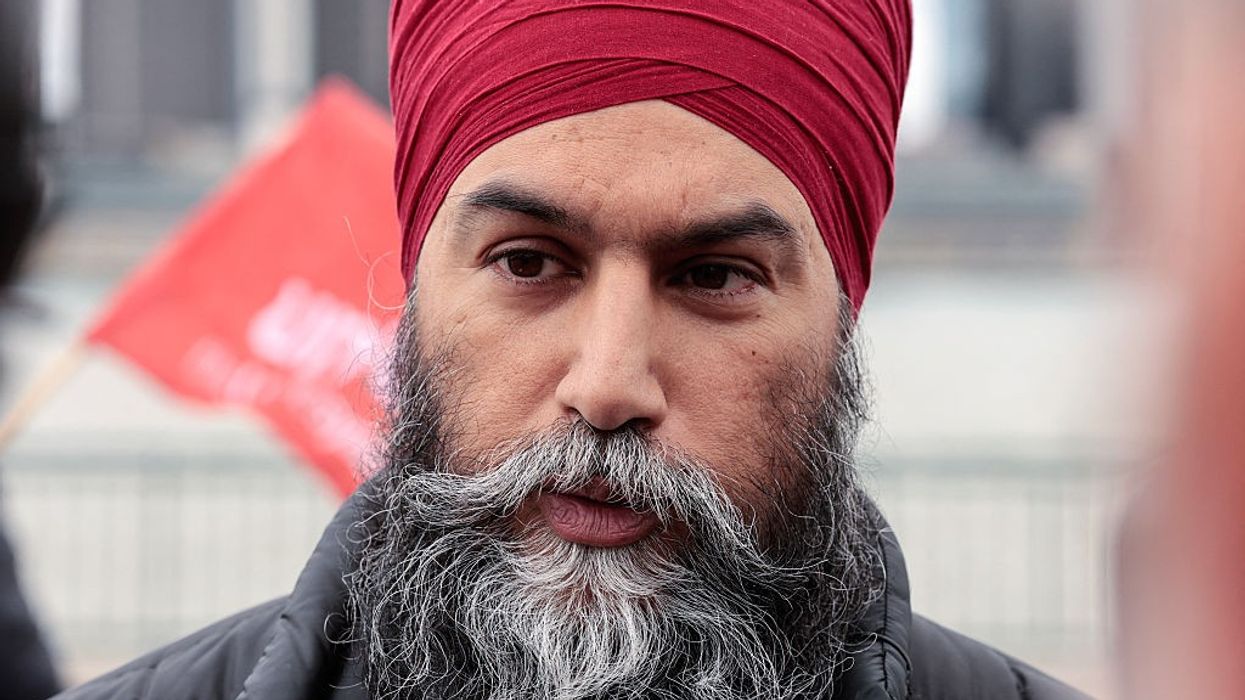JAGMEET SINGH has announced he will step down as leader of Canada's New Democratic Party (NDP) after losing his own seat in this week's federal election.
The 46-year-old, who has led the left-wing party for nearly eight years, made the emotional announcement on Tuesday (29) following a disappointing election night that saw the NDP's parliamentary presence shrink dramatically.
"It's been the honour of my life to lead the NDP and to represent the people of Burnaby Central," Singh told supporters at his election headquarters in British Columbia. "I will be stepping down as leader."
Singh, a Sikh politician who has been vocal in his support for Khalistan, a proposed independent Sikh homeland, lost the Burnaby Central seat he had held since 2019, coming third in the constituency that was affected by boundary changes ahead of the election.
The NDP suffered heavy losses across the country, winning just seven seats in the 343-seat Parliament – well below the 25 seats they secured in the 2021 election and short of the 12 needed to maintain official party status.
The party's share of the popular vote plummeted to just over five per cent, compared to nearly 18 per cent in the previous election.
"I am disappointed that we could not win more seats. But I am not disappointed in our movement. I am hopeful for our party," Singh said in a post on social media platform X after his defeat.
Singh confirmed he would remain as interim leader until a replacement is chosen. The NDP's national director Anne McGrath said the party's losses would trigger an internal review but maintained that Singh had run "an inspiring campaign".
"The dynamic of this campaign set up a very polarised electorate around two parties, and that was a real challenge for us," McGrath explained.
The election was won by the Liberal Party under Mark Carney, who took over the leadership from Justin Trudeau earlier this year.
Singh's departure marks the end of a significant chapter in Canadian politics. In 2022, the NDP signed a "supply and confidence" agreement to support Trudeau's minority Liberal government, effectively keeping it in power. However, Singh tore up this agreement last September, declaring that "the Liberals are too weak, too selfish and too beholden to corporate interests to fight for people".
Despite withdrawing support from Trudeau, the NDP did not use their votes to help bring down the government, which ultimately led to Trudeau stepping down and Carney taking over.
In his concession speech, Singh congratulated Carney on his victory and acknowledged he had "an important job to do" to protect Canada "from the threats of Donald Trump", referring to potential tensions with the current US president.
Singh made history in 2017 when he became the first person from a visible minority to lead a major federal political party in Canada. Throughout his leadership, he has been known for his progressive policies and outspoken views on various issues, including his advocacy for Khalistan.
(with inputs from PTI)





